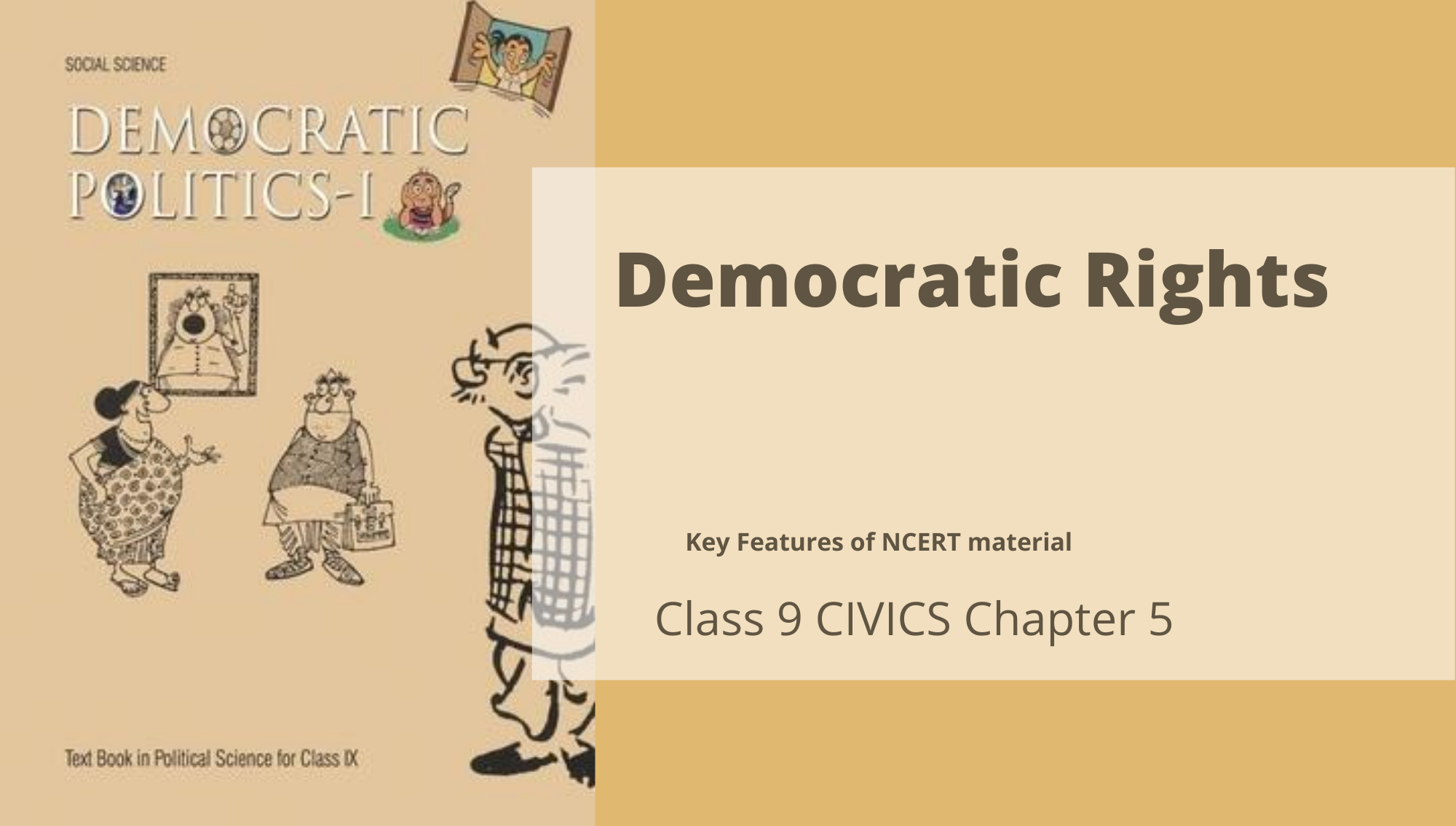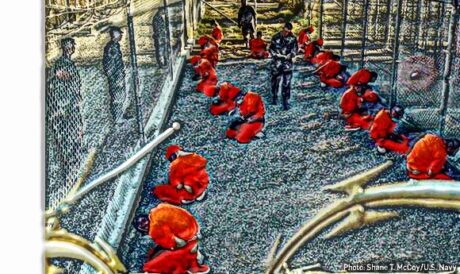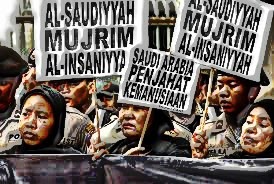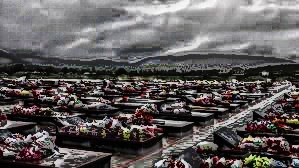Democratic Rights: Class 9 Civics NCERT Chapter 5

Key Features of NCERT Material for Class 9 Civics Chapter 5 – Democratic Rights
In the last chapter 4, you learned about working of Institutions. In this chapter you will learn about rights of people they got after democracy arrived.
(Democratic Rights: Class 9)
Life Without Rights
An existence Without Rights
How about we take 3 models that will enable you to comprehend living without rights.
1) Prison in Guantanamo Bay

The American government covertly got around 600 individuals from all over the world and put them in a jail in Guantanamo Bay. The government said that they were adversaries of the US and connected to the assault on New York on 11 September 2001.
2) Citizens’ Rights in Saudi Arabia

In Saudi Arabia, the situation of the citizens with respect to their government is as referenced beneath:
The country is governed by a genetic lord and the individuals have no job in choosing or changing their rulers.
The lord chooses the governing body just as the chief.
Citizens can’t frame ideological groups or any political associations.
There is no freedom of religion.
Ladies are exposed to many open limitations.
3) Ethnic Massacre in Kosovo

Yugoslavia was a small territory before its split. The populace was overwhelmingly ethnic Albanian however Serbs were in lion’s share in the country. A biased Serb patriot Milosevic had won the political race and his government was exceptionally threatening to the Albanians. He needed the Serbs to rule the country. Many Serb pioneers imagined that Ethnic minorities like Albanians ought to either leave the country or acknowledge the predominance of the Serbs.
Brisk update notes
Three instances of refusal of rights feature the significance of rights.
The Human Rights were abused
- In Guantanamo Bay by the US,
US covertly got 600 individuals from all over the world and tormented them. Absolution International gathered the data about these detainees.
2.In Kosovo by Milosevic’s Government, and
Serbian powers were exceptionally unfriendly to Kosovo Albanians. They were treated in barbaric manner and were attempted to driven away from the country.
- Refusal of rights in Saudi Arabia.
Saudi Arabia denies many basic liberties to strict minorities and ladies.
Rights in a Democracy
Rights are cases of an individual over other individual creatures, over the general public and over the government. However, every case is definitely not a right.
- Rights are an absolute necessity to guarantee the respect, security and reasonable play to all the citizens.
- Democracy is a framework where greatest rights are ensured to its citizens.
Rights are sensible cases of people perceived by society and authorized by law.
Need Rights in a Democracy
- Rights support a majority rule government.
- They provide for each resident a right to cast a ballot and the right to be chosen for government.
- They allow citizens to communicate their perspectives uninhibitedly, structure gatherings and participate in political exercises.
- Rights are ensures when things turn out badly. They don’t allow the lion’s share to overwhelm the minority.
- Some rights are set higher than the government with the goal that the government doesn’t abuse them.
Rights in the Indian Constitution
The Indian Constitution has given us six Fundamental Rights. They are the fundamental highlights of India’s Constitution.
Major Rights are:
- Right to Equality
- Right to Freedom
- Right against Exploitation
- Right to Freedom of Religion
- Social and Educational Rights
- Right to Constitutional Remedies.
Right to Equality: It awards uniformity to all its citizens according to law. Rule of law is the establishment of any democracy.No separation can be made against any resident on grounds of birth, rank, religion and sex. Distance is made a cognisable offense. Equivalent open door is ensured to all the citizens.
Fairness implies giving everybody an equivalent chance to accomplish whatever one is prepared to do.
Right to Freedom: It awards freedom of discourse and articulation, – The right gives freedom of articulation however one can’t utilize this freedom to actuate savagery against others.
freedom to collect in a serene way, – People can meet to talk about or for trade of thoughts. They should take care not to prompt any open issue.
freedom to shape affiliations,
freedom to move uninhibitedly in any piece of the country,
freedom to dwell in any piece of the country and practice any calling, do any occupation or exchange.
Right against Exploitation: The constitution restricts
(I) “traffic in individuals”,
(ii) Prohibits constrained work or begar and
(iii) restricts youngster work.
Right to Freedom of Religion: There is no state religion in India. All religions are given equivalent regard. Each individual has an option to proclaim, rehearse and spread his own religion.
Freedom to rehearse religion doesn’t mean doing anything for the sake of religion.
Social and Educational Rights: Minorities reserve the privilege to ration their language and culture. They reserve the option to build up their own instructive organizations.
Right to Constitutional Remedies: This is the right that makes all rights viable. On the off chance that a resident’s principal rights are disregarded or removed, he/she can look for cure through courts.
Dr. Ambedkar called this right as the ‘essence ‘ of our constitution.
Public Human Rights Commission is an autonomous association built up in 1993.Its primary work is to concentrate on common liberties and help the people in question, whose rights are abused.
(Democratic Rights: Class 9)
Growing Scope of Rights
The Constitution offers degree to grow the Fundamental Rights. Models :
(I) School training has gotten a right for Indian citizens.
(ii) Right to property is a legitimate right.
(iii) Right to look for data from government workplaces.
(iv) Right to cast a ballot in decisions.
(v) Supreme court has extended the importance off the right to life to incorporate the right to food.
Global Covenant on Economic, Social and Cultural Rights
This global pledge perceives many rights. Models
Right to work
Right to sheltered and solid condition
Right to satisfactory way of life
Right to government disability and protection
Right to wellbeing and clinical consideration, and so forth.
The South African Constitution Guarantees
Right to security, Adequate lodging, Right to admittance to medicinal services, Sufficient food and water.
(Democratic Rights: Class 9)

